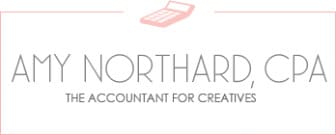As a CPA, the biggest thrill for me is helping small business owners “find money” they didn’t know they were losing when doing their taxes.
In today’s blog, I’m going to focus on tips for those of you who own S corporations. I’ll walk you through my top 10 tax strategies for S corporations and let you know where these strategies come into play on your business income tax return, Form 1120-S.
Tip 1: Pay Yourself Less
I know what you’re thinking. How is reducing my salary going to help me put more money in my bank account? It’s counterintuitive, but hear me out. If you own your S corporation and are paying yourself too high of a salary, you could be overpaying in thousands of dollars on your S corporation’s payroll taxes. Of course, you still need to pay yourself reasonable compensation for the job you’re performing for the company, but you want to make sure you’re not overpaying yourself.
Your business will report your well-thought-out salary amount on Form 1125-E and carry the total from that form over to the “Compensation of officers” on line 7 of your Form 1120-S.
Tip 2: Deduct Your Health Insurance Premiums on Your Form 1040
Unfortunately, if you own an S corporation, you cannot receive tax-free health insurance. However, if your S corp establishes the health insurance plan for you, then the premiums can be included on your W-2 taxable wages. You’ll be able to claim this deduction on your Form 1040 if you meet these criteria:
- The S corp must pay your premiums.
- You must correctly report the premiums on both your business and personal tax returns.
- You, the S corp owner, aren’t able to receive health insurance through another employer or your spouse’s employer.
Additionally, you can deduct any premiums your S corp paid for your accident insurance, dental insurance, and/or long-term care insurance. You also don’t have to pay Medicare, unemployment, or Social Security taxes on the money your business pays for your health insurance. Finally, you don’t have to pay taxes on any health insurance your business pays for any non-owner and non-family employees through a group health insurance policy.
I’ve written a full article with more details, FAQs, and examples about this tip, so be sure to head over there if you still have questions. Similar to the first tip, your business will report your premium amount as compensation on Form 1125-E and carry the total from that form over to the “Compensation of officers” on line 7 of your Form 1120-S. Don’t forget to report your compensation via your W-2 on your personal Form 1040 as well.
Tip 3: Hire Your Kid
I’m counting down the days until I can use this tip! There are lots of benefits to having an employee under your own roof, and saving money on taxes is one of them! In 2022, each child employed in the family S corp can earn up to $12,950 without paying any personal federal income taxes on that money. This decreases the income taxes for the family, so even though your S corp will have to fork over payroll taxes on those wages, you’ll still come out ahead overall.
To use this tip, your child will need to be at least 7 years of age and must be completing an actual job for your business. It’s also important that you pay your child the same amount you would pay anyone else to complete the job you’ve hired your child to perform. You should also follow all other procedures that you would complete with a non-child employee such as onboarding, W-2s, and timesheets.
Your business will report your child’s wages with “Salaries and wages (less employment credits)” on line 8 of your Form 1120-S.
Tip 4: Deduct Your Home Office Expenses
Many of my clients run their S corporations completely out of their home offices. If that’s you too, then your business should be reimbursing you for any expenses accrued in your home. This will give you, the homeowner, tax-free income and will allow a deduction for your S corp. You will need to create an accountable plan and follow proper recordkeeping for expense reports and reimbursement, but those steps are definitely worth the money you’ll get back!
Your business will report your home office expenses with “Other deductions (attach statement)” on line 19 of your Form 1120-S.
Tip 5: Deduct Your Cell Phone Expenses
When your S corporation provides your cell phone so that you can use it for business, that is a fringe benefit that becomes tax-free income. If you also use that same cell phone for personal use, that’s fine too! Your S corp can reimburse you for the business portion of the cost of the phone and can then deduct that amount on the corporate tax return.
Your business will report your cell phone expenses with “Employee benefit programs” on line 18 of your Form 1120-S.
Tip 6: Reimburse Your Travel Expenses
If you’re traveling for business, you definitely don’t want to forget to reimburse yourself for those expenses you may have paid out of pocket! You just need to make sure you do it the right way by submitting an expense report and reimbursing yourself through the business account to create a deduction for your S corp. Make sure you look over my list of how and what to deduct during business travel so you don’t forget anything.
Your business will report reimbursed travel expenses with “Other deductions (attach statement)” on line 19 of your Form 1120-S.
Tip 7: Rent Your Home to Your Business
If you plan to hold meetings in your home or use your home for any other business-related gatherings throughout the year, you can actually charge your business rent for that use. Paying yourself rent could result in big tax savings since your S corp can deduct the amount of the rent, and you’ll have more personal income that will be free from income tax.
The only caveats here are:
- Your rent can only be for 14 days or less of use during the course of a year.
- You should keep a record of the purpose of your rental.
- The rent should be in line with what similar spaces in the area would charge for that same amount of time and use.
Your business will report the rental expenses as “Rents” on line 11 of your Form 1120-S.
Tip 8: Reimburse Your Vehicle Expenses
You can rack up major tax savings with a heavy vehicle deduction, also known as a Section 179 deduction, especially if you have a home office. To qualify for this deduction, there are several requirements. The three main ones are:
- The vehicle can be new or used, but the vehicle must be new to you;
- The vehicle must be titled in the company’s name and not your name;
- The vehicle must be used at least 50% of the time for business.
First, let’s talk about what a heavy vehicle is. Don’t worry, you’re not going to need to go out and buy a big rig to satisfy this requirement. In the eyes of the IRS, a heavy vehicle is any vehicle with a gross vehicle weight rating (GVWR) of more than 6,000 pounds. This includes many SUVs, crossovers, and full-size pickup trucks. If the vehicle you choose is an SUV, your deduction will be limited to $25,000, but others are only limited to $1,080,000.
Next, let’s talk about how having a home office actually helps you reach that 50% of use towards business miles. Anytime you leave your home to complete tasks for the business, those miles count towards your business miles and can really start to rack up. Make sure you’re keeping track of your business miles so you can show you’ve met the 50% requirement.
Finally, in addition to the initial Section 179 deduction, you can also qualify for a 50% depreciation bonus when you buy a new (not used) vehicle. No matter the age of the vehicle, you will also qualify for a Modified Accelerated Cost Recovery System (MACRS) depreciation bonus over five years.
So that was a lot of numbers and percentages. Let’s look at a real-life example.
Your S corp buys a new $50,000 SUV that weighs over 6,000 pounds and will be used 100% of the time for business purposes. Here’s what happens:
- You get a $25,000 Section 179 deduction.
- You also get a 50% bonus depreciation deduction of $12,500. (To get this number, take the purchase price, subtract the Section 179 deduction amount, and then divide by 2.)
- You also get a MACRS bonus depreciation deduction of $2,500. (To get this number, take the purchase price, subtract your Section 179 deduction, subtract your 50% bonus depreciation deduction, and then multiply by .2.)
- For this example, your total business deduction would be $40,000.
In the example above, if you’d purchased a 6,000 ton full-sized pickup truck for the same price, you’d actually be able to write off the entire $50,000. If you’re unsure which vehicles qualify or how the depreciation bonuses would work for different types of vehicles, ask your accountant to help you figure that out. You might be shocked by just how much you can save!
Your business will report reimbursed vehicle expenses with “Other deductions (attach statement)” on line 19 of your Form 1120-S.
Tip 9: Reimburse Your Depreciation Expenses
If your S corporation is using your vehicle or home for the business, the business can reimburse you for the depreciation expenses associated with using those items for your business. This includes any Section 179 expenses such as the heavy vehicle discussed in the previous tip. These depreciation expense reimbursements become a deduction for your S corp and tax-free income for you. Just make sure you have an accountable plan and that you report the expenses and request reimbursements appropriately.
Your business will deduct these depreciation expenses as part of reimbursements for employee business expenses and report the amount with “Other deductions (attach statement)” on line 19 of your Form 1120-S.
Tip 10: Sell Your Home to Your S Corporation
Well, not if you’re still going to live there! However, if you plan to convert your home to a rental property, you can save big bucks by selling it to your S corp first. By doing this, you can avoid paying taxes on up to $250,000 of the profits from the sale (or up to $500,000 if married and filing jointly). In turn, this sale also increases your S corporation’s deductions. Your CPA can help you report the transaction correctly on your Form 1040 so that you opt-out of the installment-sales method and report the gain on Form 8949 with your Form 1040.
Your S corporation will report this purchase under “Depreciation not claimed on Form 1125-A or elsewhere on return (attach Form 4562)” on line 14 of your Form 1120-S.
My hope is that these tips help you “find money” that you’d otherwise be handing over to Uncle Sam. If you’re feeling excited and hoping to find other deductions, make sure you run through my ultimate guide of tax deductions for small business owners.

